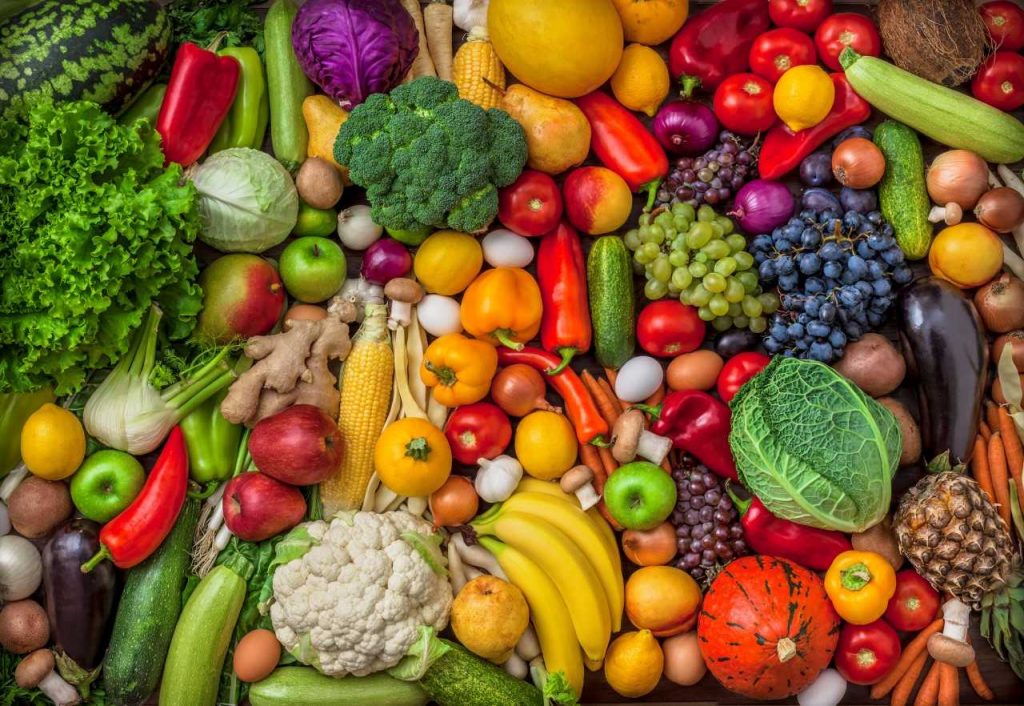FAO announced the year 2021 as the International Year of Fruits and Vegetables; a reason to grow more nutritionally benefitting essential greens and fruits and a reason to strengthen the food value chain. Consuming a daily dose of fruits and vegetables is vital for everyone. The very gifts of nature are full of energy-packed proteins, vitamins, minerals and nutrients and not present in grains and meats. This is the major reason why children are taught to develop an interest in healthy eating of fruits and vegetables. On the other hand, adults are required to include an adequate amount (400 gms/day) of fruits and vegetables.
Fruits and vegetables have natural antioxidants that help in prevention of diseases and are highly recommended when recuperating from an illness. Research has shown that the consumption of fruits and vegetables may be associated with a decreased incidence and mortality of a variety of chronic diseases which includes obesity. The change in lifestyle and increased consumption of processed foods has increased the incidence of obesity as well as lifestyle related diseases in developing countries. Awareness regarding healthy foods and diet is essential. Fruit and vegetable intake has been shown to have positive effects in terms of weight management and obesity prevention. Dietary factors are estimated to account for about 30% of cancers in developed countries, making diet second only to tobacco smoking as a preventable cause of all cancer. As per WHO, this contribution of diet to the incidence of cancer is estimated to be about 20% in developing countries but it may decrease with fruit and vegetable consumption. The benefits of including fruits and vegetables in the diet are many; mentioned below are few of them:

Faultless growth and development
Vitamin A, iron, calcium and folic acid promotes good health in children. All of these can be found in vegetables and fruits. A proportionate amount of both can strengthen a child’s immune system against deadly diseases while improving their brain development.
Improved Mental Health
As per a study, it was seen that the high total intake of fruits and vegetables, and some of their specific subgroups including berries, citrus, and green leafy vegetables, promotes higher levels of optimism and self-efficacy, as well as reduced the level of psychological distress, ambiguity, and cancer fatalism, and protected against depressive symptoms.
Lowers the Risk of Cancer
The daily dose of fibrous fruits and greens prevents one from developing certain types of cancers; It prevents the risk of breast, cervix, oesophagus, colon, bladder, stomach, pancreas and ovarian cancer.
Longevity
According to a study conducted in 10 European countries, people who consume more fruit and vegetables are lesser prone to early death when compared to their counterparts.
Prevents Cardiovascular Diseases
A good amount of fibre and antioxidants in fruits and vegetables prevent the risk of cardiovascular diseases.
Lowers the risk of obesity
A lot of studies reveal that the risk of adiposity and obesity gets lowered among those who consume fruits and vegetables regularly.
Lowers the risk of diabetes
As per a study higher fruit or vegetables, particularly green leafy vegetables intake, is associated with a significantly reduced risk of type 2 diabetes. Dose–response analyses indicated a 6% lower risk of type 2 diabetes per 1 serving/day increment of fruit intake and a 13% lower risk of type 2 diabetes per 0.2 serving/day increment of green leafy vegetables intake.
Improved Immunity
Immunity is the key to fight with various diseases and keeping infections at bay. Consumption of vegetables and fruits is recommended to those under-recoveries for a quick boost in metabolism and immunity.
The pandemic has shown the world the benefits of maintaining a good immunity level. However, the sad fact is that people consume very little amount of fruits and vegetables daily. On an average, we consume just two-thirds of the recommended fruits and vegetables which restricts healthy development. People in different regions or countries do not have equal access to the available fruits and vegetables in the market. For many, cultural food habits and lifestyle, influence consumption and for some lack of information on proper diet is responsible for not consuming the recommended quantities.
Hence, the IYFV is a great opportunity to raise awareness about the significance of healthy consumption of fruits and vegetables.

